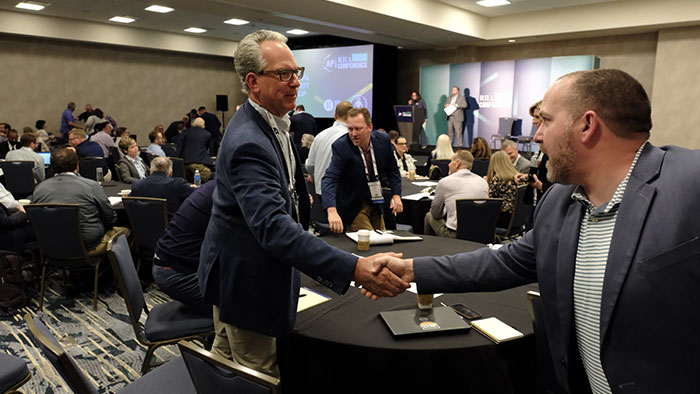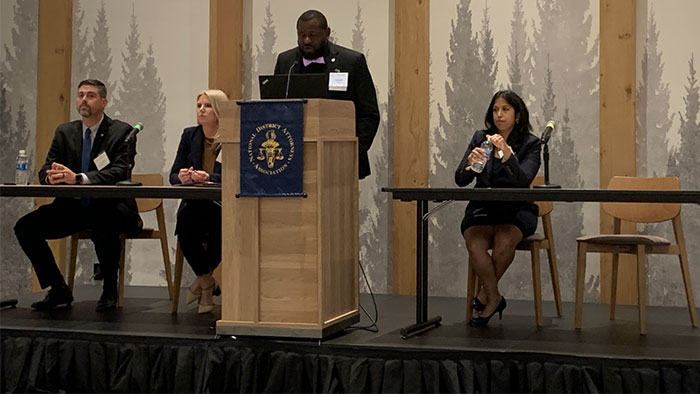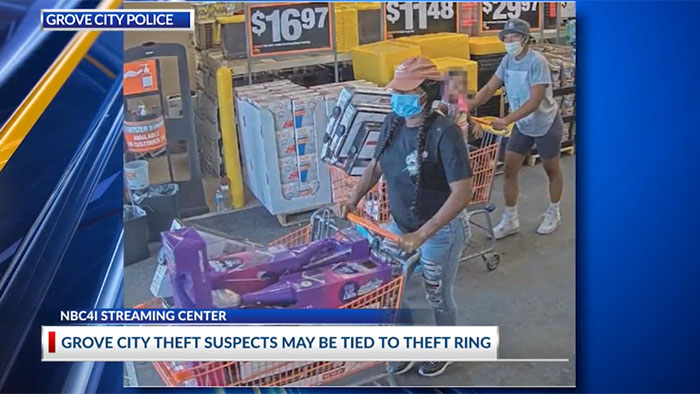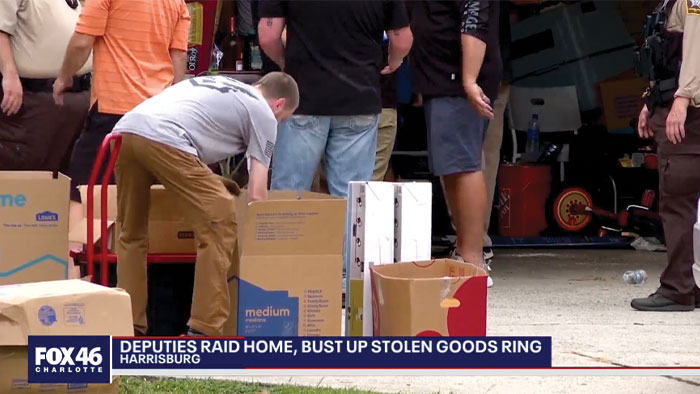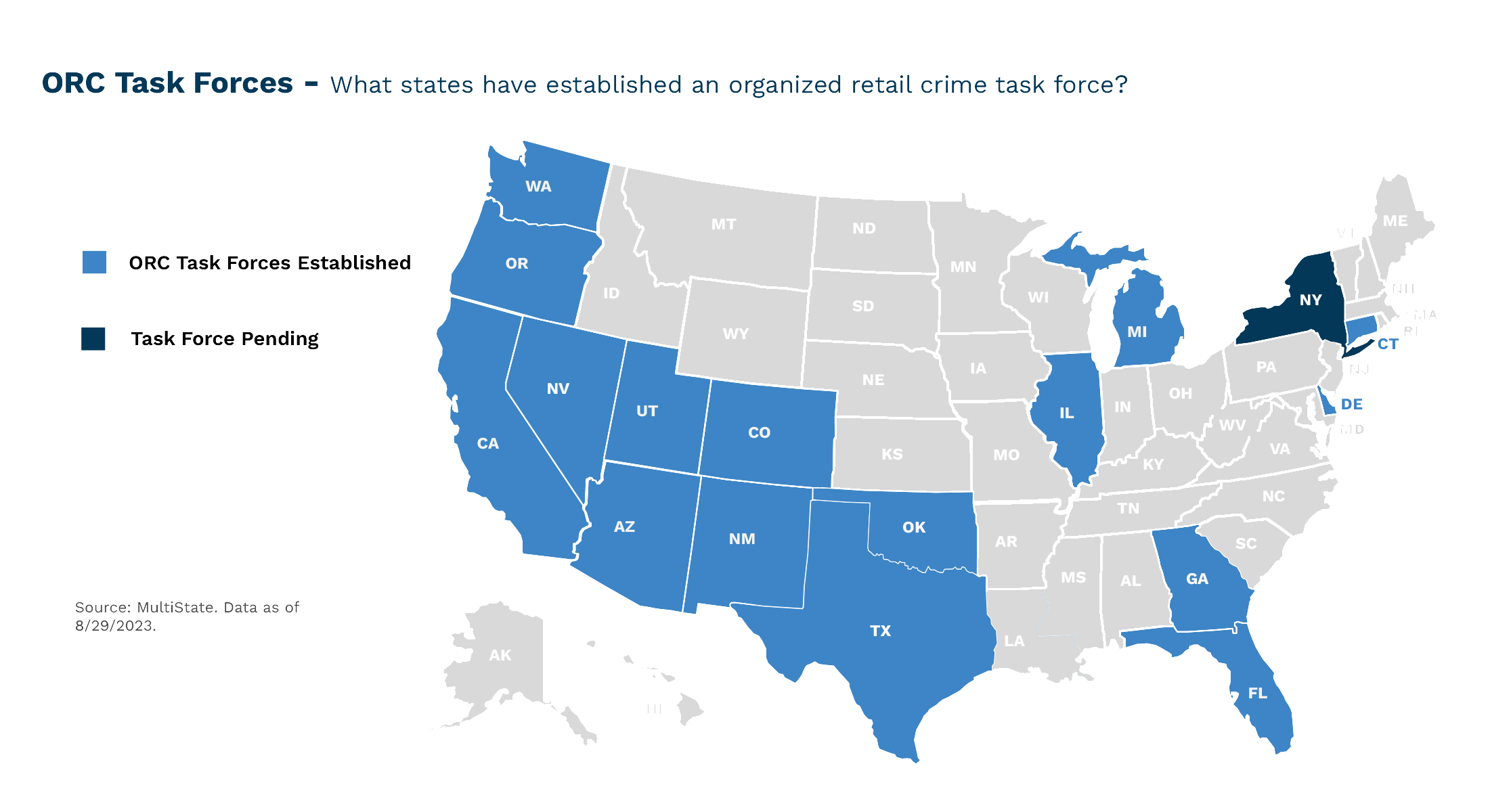The National District Attorneys Association (NDAA) and Retail Industry Leaders Association (RILA) have formed a first-of-its-kind national partnership to combat retail crime. The launch of the national partnership follows a successful summit held on June 30, 2022, bringing together leading retailers and district attorneys’ offices from around the country to establish open lines of communication between prosecutors and retailers, identify common challenges, share information on repeat offenders, and work together to identify criminal networks targeting local retailers.
RILA, NDAA Drive Local Collaboration to Combat Retail Crime
RILA and the National District Attorneys Association (NDAA) Store Walk Initiative connects retailers with local prosecutors for a unique approach to tackling organized retail crime, habitual theft, and its impact on communities.
Store Walk InitiativeRetail Crime Advisory Board




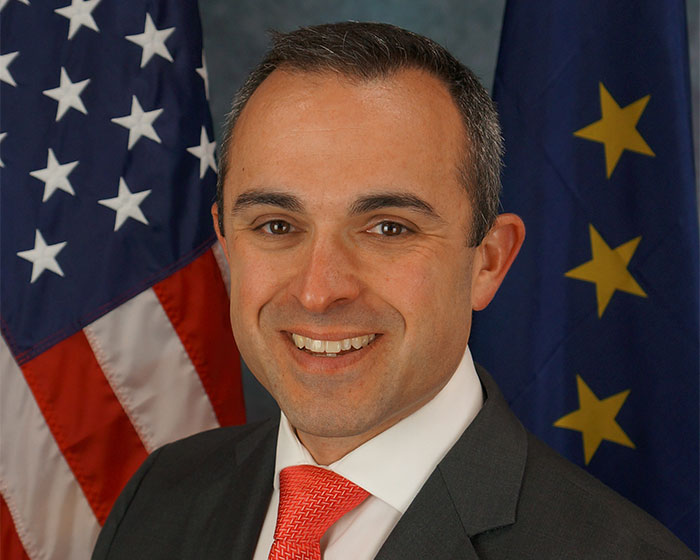






Discover more on the Vibrant Communities Initiative
RILA & NDAA partnered to launch the Initiative, to bring together district attorneys, police departments, social service organizations & other stakeholders to identify effective approaches for dealing with organized retail crime, habitual theft, violence, vagrancy & blight in & around retail stores.
Vibrant Communities InitiativePartnership Sponsor

Target
RILA and NDAA are grateful to Target Corporation for its support of Combatting Retail Crime for Safe Communities, a first of its kind national partnership of leading retailers and district attorneys. United in their shared goals to reduce retail crime, protect frontline workers and promote vibrant communities across the country, the partnership provides opportunities for enhanced collaboration, best practice sharing and problem-solving. This ground-breaking work is made possible by the generosity of Target Corporation.
Minneapolis-based Target Corporation (NYSE: TGT) serves guests at nearly 2,000 stores and at Target.com, with the purpose of helping all families discover the joy of everyday life. Since 1946, Target has given 5% of its profit to communities, which today equals millions of dollars a week.
Take it from our members
From the cohort meetings, I have learned about business models, fiscal calendars, in-store camera considerations, legal requirements from their corporate lawyers, current plagues, regional differences, and a lot of information that does make me a better prosecutor and a better representative in court of my retail partners. I still have so much more to learn from these folks!
Anna Winn
- Deputy District Attorney
- Regional Fraud Task Force
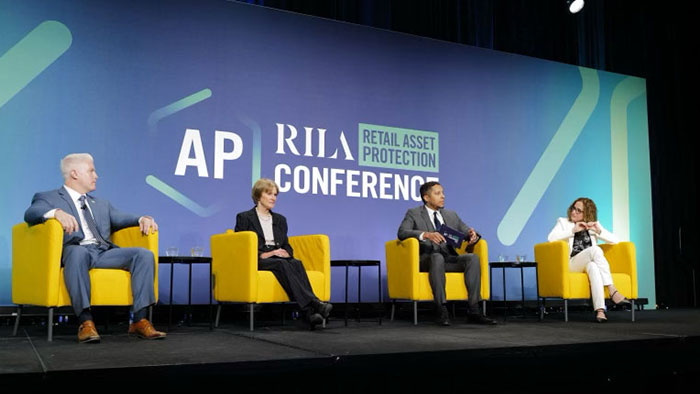
RILA Retail Asset Protection Conference
The Retail Asset Protection Conference brings you three days of keynotes, breakout sessions, and an Expo Experience that allows you to create efficiencies and work smarter, not harder.
Access Past Webinars - Available for RILA & NDAA Members
This content is exclusive to RILA members and/or members of National District Attorneys Association (NDAA). If you are a RILA member, click here to access. If you are an NDAA Member, click here.
If you are a prosecutor, you need to log into NDAA to access the member-only content.
More than Organized: Addressing Retail Crime (October 5, 2022)
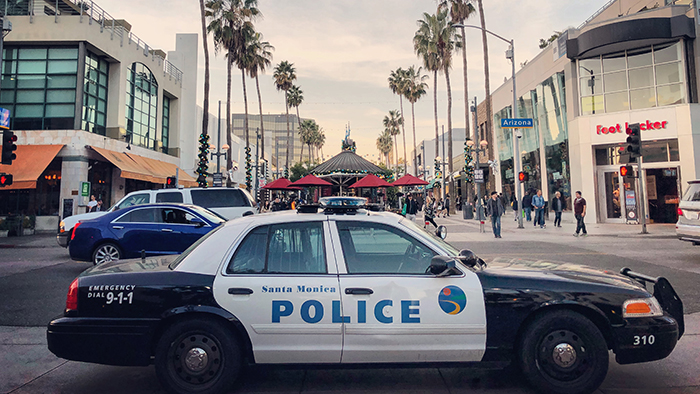
In this webinar, County Attorney Rachel Mitchell and Arizona Retailers Association Executive Director Michelle Ahlmer discuss how county prosecutors are working with local law enforcement, city prosecution agencies, and retail loss prevention professionals to address this serious community issue.
Featured Webinar
How Seattle is Driving Down Habitual Theft (July 27, 2023)
Seattle City Attorney Ann Davison shared results from her office’s High Utilizer Initiative, which identifies and reduces the impact of individuals responsible for persistent criminal activity across Seattle.

The Value of In-Store Technology in the Courtroom (May 24, 2023)
The Home Depot & Colorado’s 17th Judicial District Attorney’s Office shared how the local AP team & prosecutors are rallying around tech, what prosecutors need to know about emerging tech retailers leveraging & tips for retailers to ensure the preservation of evidence generated by tech solutions.

Prosecutors’ Retail Theft Programs (March 2, 2023)
The Philadelphia and San Francisco District Attorneys’ Offices shared how their teams partner with retailers to proactively identify habitual theft offenders, investigate ORC, prosecute the worst offenders and provide support services to reduce recidivism.
Are you a member? Login to access our past webinars!
Resources
Local AP contact list: Prosecutors: Need help locating a retail witness or evidence? Retailers: Want an update on the status of a criminal case referred from your store? Find your local AP/DA contact here. Go back to the contact list regularly to update your office/company’s POC information. Don’t see your office/company on the list? Contact Adora Adora.Belcher@RILA.org.

Local Asset Protection Contact List
RILA & NDAA created a Local Asset Protection Contact List; after hearing from District attorneys, they often need help identifying local retail contacts. Retailers can insert their regional Asset protection POCs to help DAs with questions, locating a witness, evidence, or victim impact statement.
Are you a member? Login to access our resources!
Vibrant Communities FAQ
Does Vibrant Communities focus on juvenile offenders?
How were the pilot communities selected?
- density among RILA members, common designation among RILA members as high-risk area;
- engaged District Attorney, integrated community and social services, reasonable expectation that an impact can be measured in one year;
- supportive police chief and properly resourced police department, aligned statutory environment;
- supportive mayor/city manager/local government and active Local business organization(s).
How will success of the pilot be measured?
How will Vibrant Communities seek to address recidivism among HIOs?
For example, key stakeholders will collaborate to investigate and shut down local fences that recruit and employ habitual theft offenders. While diversion may be an appropriate resolution for the shoplifter/booster, the fence may face stiffer penalties - including incarceration – in an effort to deter future criminal conduct by that fence as well as others engaging in similar criminal activity.
Is there a cost to participate in the pilots in King County and Yolo County?
Is there a cost to retailers to participate in Vibrant Communities?
- Executive Committee member (top decision-making body for the overall Vibrant Communities initiative, guiding strategy, focus, pace, etc.); and
- Steering Committee member (provides input on initiative priorities and actions) Participation at the Executive Committee and Steering Committee levels will require an investment from retailers (and other stakeholders who participate).
My company doesn’t operate stores in Yolo County or King County. What does that mean for our company’s participation in the vibrant communities initiative?
What are the desired outcomes of the pilot and the broader Vibrant Communities initiative?
What do you say to critics who think Vibrant Communities is soft on crime? Or the critics who think Vibrant Communities is really about locking-up more people?
In some cases, like crimes of violence against retailer workers, or sophisticated criminal enterprises causing large-scale financial losses, incarceration is the only way to prevent a HIO from re-offending and to deter others from committing similar crimes. Vibrant communities will pursue prosecution of the worst offenders.
There are also HIOs whose propensity to engage in unlawful activity is fueled by underlying issues (e.g. drug addiction, mental illness, homelessness) and who, if provided targeted support services, can rehabilitate and live productive crime-free lives.
Vibrant Communities takes a rational, balanced and individualized approach to addressing recidivism among HIOs.
What is a High-Impact Habitual Offender?
Examples of an HIO include a booster in an organized retail crime ring, a habitual shoplifter acting alone for profit (i.e. assumes dual role of shoplifter and fence), a fence that recruits and employs habitual offenders, an actor who has used or repeatedly threatened the use of violence against employees, or an individual who self-administers narcotics in a store or sets-up shelter in a store’s parking lot.
What is expected of retailers who participate in the pilot?
What is the goal of Vibrant Communities?
What is the Vibrant Communities Initiative?
To that end, RILA and the National District Attorneys Association (NDAA) partnered to launch a pilot in 2 communities that brings together district attorneys, police departments, social service organizations, local policy makers, civic and business groups and other stakeholders to identify effective approaches for dealing with High-Impact Habitual Offenders.
What methods will be used to achieve the desired outcomes?
What role do solution providers play in Vibrant Communities?
When is the pilot expected to launch?
Where are the two pilot communities?
Why is RILA partnering with the National District Attorney Association to lead this effort?
Partnering with the NDAA – the leading association of local prosecutors across the country – enhances collaboration between retailers and the very prosecutors assigned to handle retail crime cases.
Featured News
"National Store Walk Month represents our next leap forward in establishing comprehensive retail crime mitigation strategies and fostering community well-being," said Lisa LaBruno, RILA's Senior Executive Vice President. "This initiative will bridge the gap between retailers and prosecutors, helping us collectively address the complex challenges our communities face."
- RILA, NDAA LAUNCH NATIONAL STORE WALK MONTH
“There is no easy solution to tackle theft and violence; we’re facing a complex, multi-faceted challenge and it’s going to take commitments from a diverse group of stakeholders to better understand the root causes in various communities and implement solutions that acknowledge and address those larger issues,” remarked NDAA Executive Director Nelson Bunn.
- RILA AND NDAA COLLABORATE ON VIBRANT COMMUNITIES INITIATIVE
As prosecutors, we must protect the safety of retail employees and customers by holding the individuals who commit thefts, violence and other retail-related offenses accountable for their crimes. I look forward to continued discussions with the RILA on how to uncover the criminals who profit from stolen merchandise, prevent thefts and enhance public safety for all who shop and work at our nation’s retailers,” said Erie County District Attorney John J. Flynn, President of NDAA.
- PROSECUTORS, RETAILERS PARTNER TO COMBAT RETAIL CRIME
Get Informed About the New INFORM Consumers Act
The INFORM Consumers Act requires online marketplaces to develop and apply major new initiatives to know their third-party sellers while also imposing significant liability for failing to take appropriate action against bad actors. The Federal Trade Commission and state enforcers are charged with enforcing the Act. Read RILA’s analysis of the INFORM Act as well as an short “cheat sheet” outline of the provisions.
Contact Information





